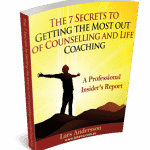Relax the mind to sleep
This is the December 2012 issue of the Integrating Awareness Newsletter. The focus for this issue is Relax the Mind to Sleep, with articles about:
- Insomnia; what it is, what causes it, how it affects you, and treatments;
- Good Sleep Tips; how to avoid becoming sleep deprived.
Only two articles this time? Yes, December is such a busy month anyway, so I figured you may not find the time to read more… But of course, if you are interested in reading more articles about sleep or about any other subject relating to the work that I do, you can find a quite a number of them in the article section of my website.
Usually I also include in each newsletter, invitations to upcoming events, such as meditation courses and sleep school workshops. However, currently I don’t have any courses/workshops planned for next year, so you will need to keep an eye on the website for upcoming events.
If you haven’t already seen the new look of the facebook page for Integrating Awareness, I invite you to go and check it out – it looks really neat now! And, of course, while you are there, make sure to ‘like’ the page too.
In the new year I hope to use the facebook page for various conversations with people who are interested in the subjects that I write about and work with, so if you ‘like’ the page something interesting may come your way!
What I would really appreciate is if you would be so kind to give some feedback about this newsletter on my facebook page. I don’t know how many of you actually read what I put together, and what you think of it. I have created a Question entry on the facebook page, for this purpose. There is also a place where you can put suggestions for future newsletter themes, if you wish to give me a hint… So, please, visit the facebook page now!
Relax the mind to sleep
with Relax-the-Mind Sleep Therapy
Relax-the-Mind Sleep Therapy is a drug-free treatment for insomnia and similar sleeping disorders, which is supported by scientific research and has proven to be at least as effective as sleeping pills. It integrates mindfulness practices with psychotherapy, sleep hygiene, stimulus control, behavioural interventions, cognitive therapy, physical and mental relaxation techniques, and non-trance elements from hypnotherapy. And as its name says, it will relax the mind to sleep!
I have used Relax-the-Mind Sleep Therapy to help clients overcome sleep problems ranging in severity from mild to severe, with very good results. It really works! And without the side-effects for sleep drugs!
Up until just recently Relax-the-Mind Sleep Therapy had its own website, but now it has been integrated with my main website. Please, feel free to have a look at the new menu items, browse around, and read more about sleep and sleep problems, and how to overcome them.
Curious facts about sleep
Here is a collection of facts (from ABC’s National Sleep Research Project) that you may be able to entertain the family with over the Christmas pudding;
- The record for the longest period without sleep is 18 days, 21 hours, 40 minutes during a rocking chair marathon. The record holder reported hallucinations, paranoia, blurred vision, slurred speech and memory and concentration lapses.
- A new baby typically results in 400-750 hours lost sleep for parents in the first year.
- The continuous brain recordings that led to the discovery of REM (rapid eye-movement) sleep were not done until 1953, partly because the scientists involved were concerned about wasting paper.
- Elephants sleep standing up during non-REM sleep, but lie down for REM sleep.
- Scientists have not been able to explain a 1998 study showing a bright light shone on the backs of human knees can reset the brain’s sleep-wake clock.
- Seventeen hours of sustained wakefulness leads to a decrease in performance equivalent to a blood alcohol-level of 0.05%.
- The NRMA estimates fatigue is involved in one in 6 fatal road accidents.
- After five nights of partial sleep deprivation, three drinks will have the same effect on your body as six would when you’ve slept enough.
- Teenagers need as much sleep as small children (about 10 hours) while those over 65 need the least of all (about six hours). For the average adult aged 25-55, eight hours is considered optimal.
- Diaries from the pre-electric-light-globe Victorian era show adults slept nine to 10 hours a night with periods of rest changing with the seasons in line with sunrise and sunsets.
- Experts say one of the most alluring sleep distractions is the 24-hour accessibility of the internet.
Articles
Insomnia
The term “insomnia” doesn’t only refer to when people can’t sleep at all. It also refers to the common kind of sleep problem; struggles to fall asleep at night, or waking up in the middle of the night and struggling to get back to sleep. Or both. With the various effects that this may then have on your ability to function properly during the day. Read more…
Good Sleep Tips
Sleep deprivation can be detrimental to both your mental-emotional and your physical health & wellbeing. These good sleep tips may help you avoid becoming sleep deprived, or help you get back to good sleep, if you have become sleep deprived.. Read more…
I hope you found something that interested you in this issue of the Integrating Awareness Newsletter, and again, please visit and ‘like’ the Integrating Awareness facebook page!
Until the next time,
Be well and enjoy Being!
Lars Andersson

